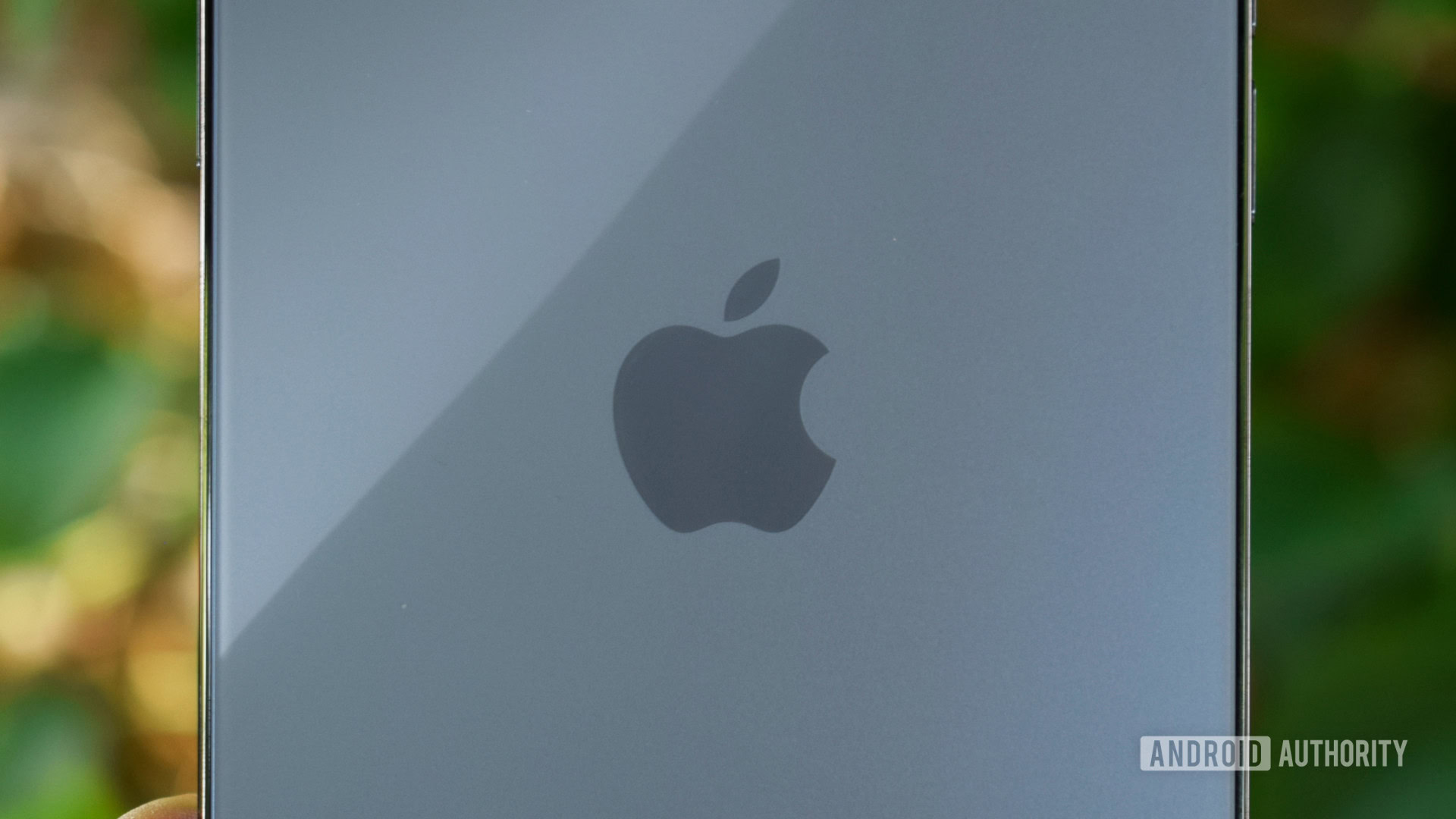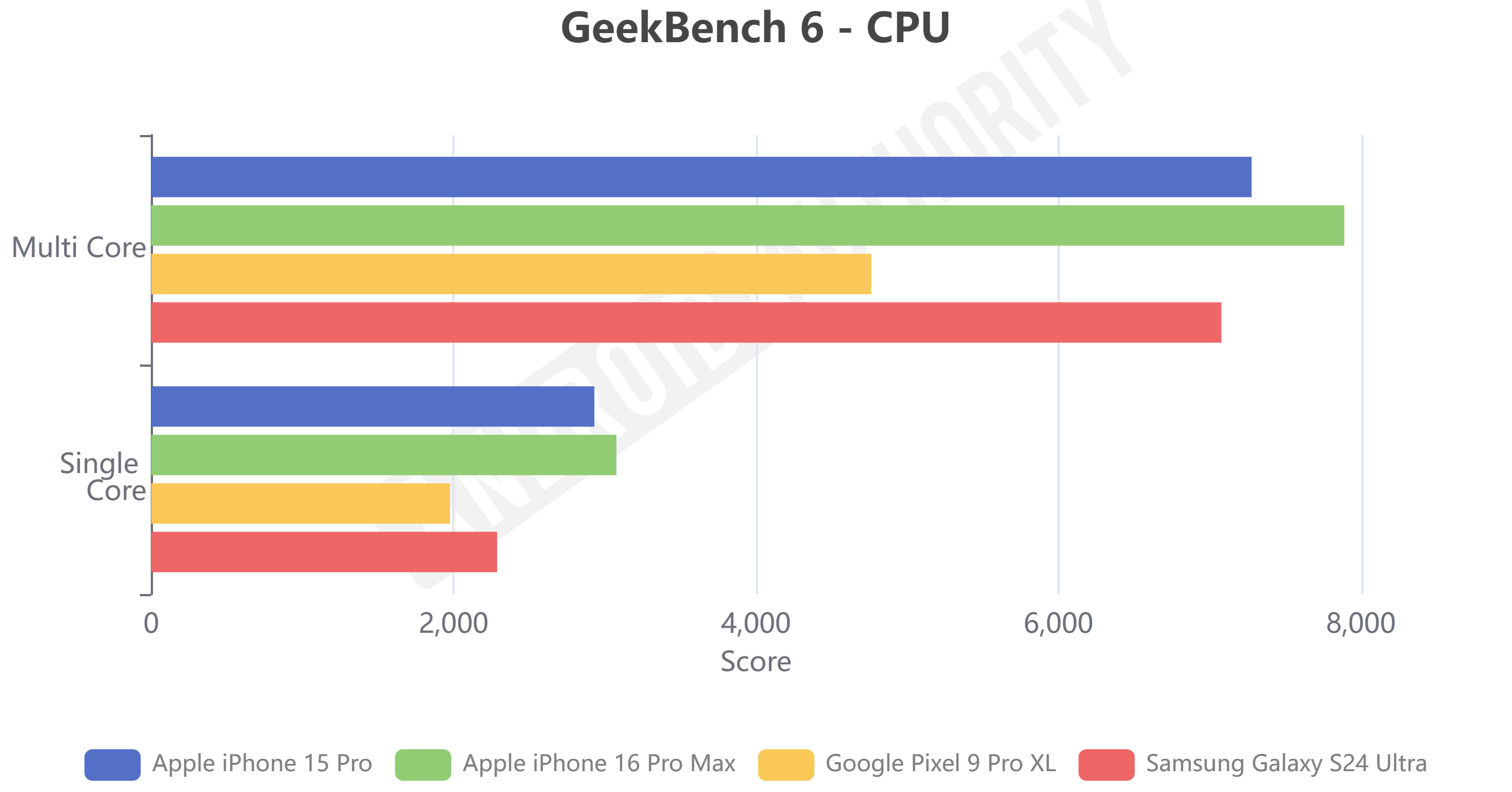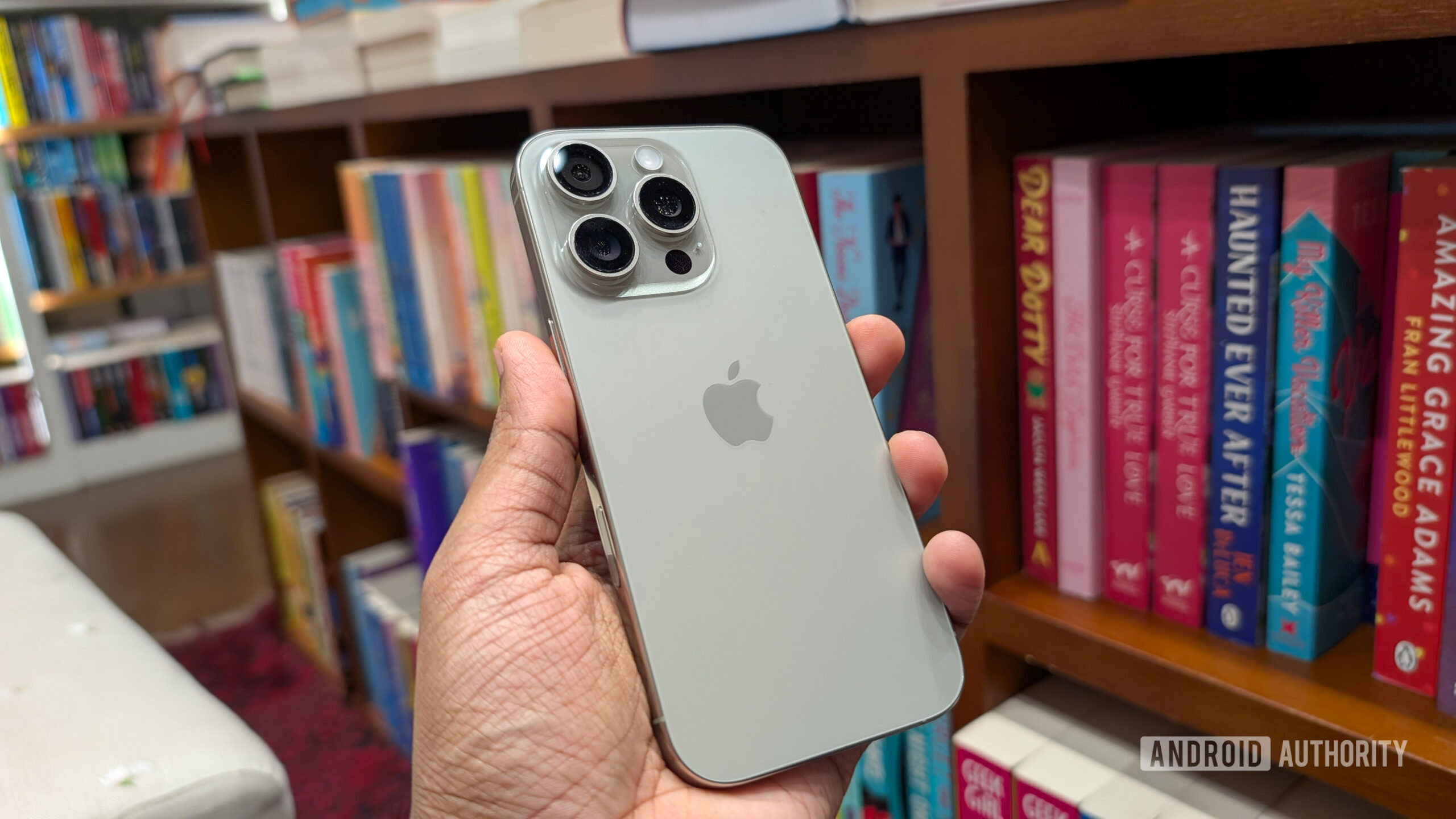Affiliate links on Android Authority may earn us a commission. Learn more.
iPhone 16 Pro Max benchmarks: Faster than Android?
Published onSeptember 27, 2024

New iPhones can mean only one thing for performance junkies — it’s benchmarking time to see if it’s faster than anything Android has to offer. The latest iPhone 16 Pro and Pro Max sport a new Apple A18 Pro chipset that makes some big performance claims over its predecessors, including memory bandwidth, a beefier CPU, and improved energy efficiency.
Let’s see how Apple’s best mobile chip compares to its Android-bound rivals and whether it has the chops to take the performance crown. We’ve grabbed some of the latest Android phones powered by the Snapdragon 8 Gen 3 and Tensor G4 to compare against.
Apple A18 Pro specs
| Apple A18 Pro | Qualcomm Snapdragon 8 Gen 3 | Google Tensor G4 | |
|---|---|---|---|
CPU | Apple A18 Pro 2x Performance @ 4.04GHz 4x Efficiency @ 2.2GHz | Qualcomm Snapdragon 8 Gen 3 1x Cortex-X4 @ 3.3GHz 3x Cortex-A720 @ 3.15GHz 2x Cortex-A720 @ 2.96GHz 2x Cortex-A520 @ 2.27GHz | Google Tensor G4 1x Cortex-X4 @ 3.1GHz 3x Cortex-A720 @ 2.6GHz 4x Cortex-A520 @ 1.92GHz |
GPU | Apple A18 Pro Apple 6-core | Qualcomm Snapdragon 8 Gen 3 Adreno 750 | Google Tensor G4 Arm Mali-G715 (MC7 assumed) |
AI | Apple A18 Pro Neural Engine 16-core | Qualcomm Snapdragon 8 Gen 3 Hexagon | Google Tensor G4 Third-gen Tensor Processing Unit |
Node | Apple A18 Pro TSMC 3nm | Qualcomm Snapdragon 8 Gen 3 TSMC 4nm | Google Tensor G4 Samsung 4nm |
Apple A18 Pro benchmarks

On paper, Apple’s six-core CPU setup and slower clocks seem anemic compared to the competition but can be deceiving. Apple’s custom take on the Arm architecture gets through a lot of work with each clock, as you can see below in the single-core results. This extends into solid multi-core performance, too.
The Apple A18 Pro has the fastest CPU setup we’ve benchmarked. It bests the Snapdragon 8 Gen 3 inside the Galaxy S24 Ultra by 35% in GeekBench 6’s single-core test but isn’t quite so far ahead with an 11% lead in multi-core. Google’s Tensor G4 inside the Pixel 9 Pro XL is much further off the pace; the latest iPhone thrashes it by 56% and 66%, respectively.

If you owned last year’s iPhone 15 Pro or Pro Max, however, the upgrade is less significant. We clocked just a 5% single-core and 8% multi-core improvement, which won’t move the needle much in terms of app responsiveness. It’s also well below Apple’s 15% boost claim. However, Apple also states the chip is more efficient — it’s built on a newer manufacturing node (TSMC 3nm) than its rivals — which means better battery life for the same workloads.
Apple fans have even less reason to upgrade in the gaming department, but there’s a silver lining here. The six-core GPU’s scores are virtually identical to last year’s A17 Pro; nothing appears to have changed in terms of architecture. There’s a reason Apple made many of its launch comparisons against much older chipsets.
However, our iPhone 16 Pro Max manages much better sustained performance scores than last year’s iPhone 15 Pro. It hands in stability scores of 75% and 86% for 3DMark’s WildLife Extreme and SolarBay tests, compared to 67% and 70% for our older model. This means higher frame rates and fewer dropped frames during prolonged play sessions. While the A18 Pro isn’t outright more powerful, its more efficient nature means it can realize more of its potential for longer.
Compared to Android’s finest, the A18 Pro is 60% faster than the Tensor G4’s Arm Mali-G725, again showcasing that Google’s latest isn’t a gaming powerhouse. The latest Pixel doesn’t support ray tracing, either. For that, you’ll want a Snapdragon 8 Gen 3, which clocks in 24% faster than Apple’s latest in standard rasterization and 46% faster in the ray tracing test.
While the Samsung Galaxy S24 Ultra has the iPhone 16 Pro Max licked for raw graphics performance, it’s important to note its dubious stress test stability scores of just 57%. Under prolonged stress, performance declines to a very similar level to the Pro Max. Still, this makes the Snapdragon the better gaming chip overall, especially if you grab a gaming phone with superior cooling.
Is the iPhone 16 Pro Max the fastest smartphone?

The Apple A18 Pro inside the iPhone 16 Pro and Pro Max lands some key wins. It’s clearly a more efficient chip than its predecessor, which will please gamers, and has a modest CPU improvement to keep apps feeling super responsive. That said, it’s certainly not a major upgrade from last year’s A17 Pro in terms of outright performance.
Perhaps Apple is reaching the end of the generational performance gains from its current architectures. Of course, it’s not all about classic performance metrics these days. Apple has invested resources in boosting its Neural Engine’s performance by 30%, which will provide a notable uplift to Apple Intelligence features (when they finally arrive). However, AI workloads are notoriously diverse, so that performance gain likely won’t be applied across every case.
The A18 Pro primarily improves AI and efficiency.
Regardless, current Android phones are very much in the mix, sporting their impressive gaming and AI capabilities that give the latest iPhones a run for their money. However, Google’s Tensor G4 remains some way behind the best iPhone in classic performance metrics and is banking on an AI feature lead to compete.
We’re just a few weeks away from the first next-gen Android chipsets, which could surpass Apple’s chipset in most regards for the first time, provided they offer solid performance gains.